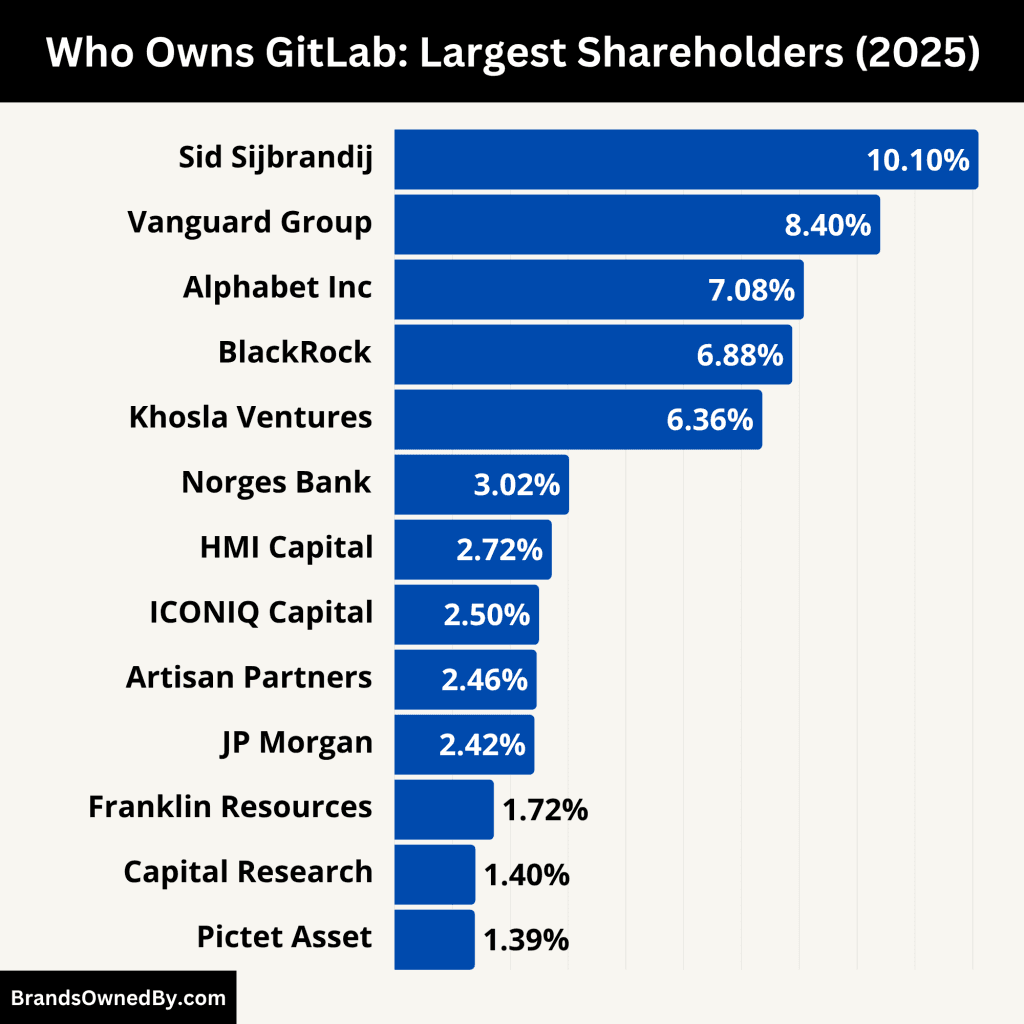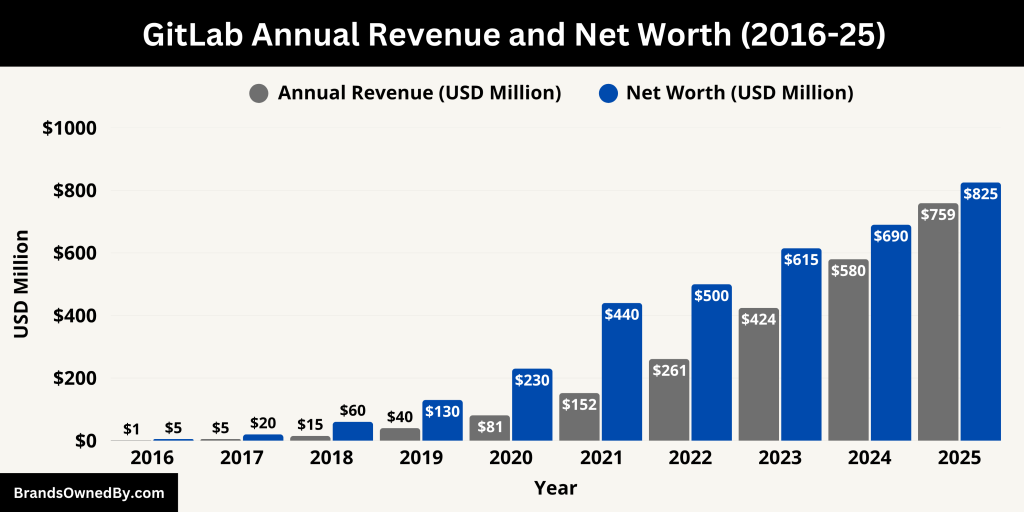GitLab is one of the most recognized DevOps platforms in the world. Many people search to understand who owns GitLab, especially as its services power thousands of companies globally. This article covers GitLab’s ownership, leadership, financials, and more.
GitLab Company Profile
GitLab Inc. is a comprehensive DevOps platform that enables teams to collaborate on every stage of the software development lifecycle. It integrates source code management (SCM), continuous integration (CI), continuous delivery (CD), security, and monitoring in one application. GitLab is known for its open-core model, which combines an open-source community edition with a proprietary enterprise edition.
The company was founded in 2011 by Dmitriy Zaporozhets, a Ukrainian developer, and Valery Sizov. The initial version was a simple Git repository manager with a web interface. Over time, GitLab evolved from a version control system to a full DevSecOps platform.
Company Overview
GitLab Inc. is headquartered in San Francisco, California, but it operates as a fully remote company with no physical offices. It employs thousands of team members across more than 60 countries.
GitLab follows a unique “handbook-first” approach. Every process and company guideline is documented publicly in its online handbook, embracing radical transparency.
The platform serves a wide range of customers—from individual developers to large enterprises and government agencies. It is used by organizations for code collaboration, security testing, compliance, and deployment across cloud and on-premise environments.
GitLab’s business model includes free tiers for individual users and open-source communities, along with paid tiers for business users with advanced features, support, and integrations. Its flexibility and unified approach make it a strong alternative to using multiple DevOps tools.
Major Milestones
- 2011: GitLab started as an open-source project written in Ruby by Dmitriy Zaporozhets.
- 2012: Sid Sijbrandij joined the project and helped commercialize it by forming GitLab B.V.
- 2015: GitLab raised its first major round of funding and started building a global remote team.
- 2016: GitLab introduced Auto DevOps and expanded its CI/CD capabilities.
- 2018: The company released features like Kubernetes integration and advanced security testing.
- 2020: GitLab announced its plan to go public and began preparing for IPO.
- 2021: GitLab went public on NASDAQ under the ticker GTLB with a valuation over $11 billion.
- 2021–2025: GitLab made strategic acquisitions (like Opstrace and Fuzzit) and expanded its enterprise offerings.
Who Owns GitLab: Top Shareholders

As of 2025, GitLab Inc. maintains a diverse ownership structure, comprising individual stakeholders, venture capital firms, and institutional investors. The company operates with a dual-class share system, granting Class B shares enhanced voting rights. This structure allows certain shareholders to exert significant influence over corporate decisions.
Here’s a list of the top shareholders of GitLab as of June 2025:
| Shareholder | Shares Owned | % Ownership | Estimated Value (USD) | Voting Power / Influence |
|---|---|---|---|---|
| Sid Sijbrandij (CEO & Co-founder) | 16,485,472 | 10.1% | $771.5 million | 45.5% voting power via Class B shares |
| The Vanguard Group, Inc. | 13,144,261 | 8.4% | $615.1 million | Major institutional investor |
| GV (Alphabet Inc.) | 11,600,000 | 7.08% | $543.5 million | 22.2% voting power, early strategic investor |
| BlackRock, Inc. | 11,284,000 | 6.88% | $527.9 million | Passive investment influence |
| Khosla Ventures | 10,430,000 | 6.36% | $487.9 million | Early VC backer, advisory influence |
| ICONIQ Capital, LLC | 4,110,000 | 2.5% | $192.2 million | Financial investor, no governance control |
| HMI Capital Management, L.P. | 4,470,000 | 2.72% | $209 million | Institutional investor |
| Norges Bank Investment Management | 4,950,000 | 3.02% | $231.8 million | Sovereign wealth fund investor |
| JP Morgan Asset Management | 3,960,000 | 2.42% | $185.5 million | Passive institutional stake |
| Capital Research & Management Co. | 2,290,000 | 1.4% | $107.3 million | Long-term investor |
| Artisan Partners LP | 4,030,000 | 2.46% | $188.8 million | Institutional investment firm |
| Franklin Resources, Inc. | 2,820,000 | 1.72% | $131.9 million | Strategic tech-sector investor |
| Pictet Asset Management Ltd. | 2,280,000 | 1.39% | $106.8 million | International asset manager |
Sid Sijbrandij (Co-founder & CEO)
Sid Sijbrandij, GitLab’s co-founder and CEO, holds approximately 10.9% of the company’s shares. Through his Class B shares, which carry ten times the voting power of Class A shares, he controls about 45.51% of the total voting power. This substantial influence enables him to steer the company’s strategic direction effectively.
GV Management Company, LLC (Alphabet Inc.)
GV, formerly known as Google Ventures and a subsidiary of Alphabet Inc., is a significant shareholder in GitLab. As of 2025, GV holds around 11.6 million shares, representing approximately 7.15% of the company’s total shares. This stake translates to a 22.2% voting power, making Alphabet a key player in GitLab’s governance.
The Vanguard Group, Inc.
Vanguard is one of the largest institutional investors in GitLab, owning about 13.14 million shares, which accounts for roughly 8.4% of the company’s shares. As a passive investor, Vanguard does not actively participate in GitLab’s day-to-day management but holds a significant financial interest.
BlackRock, Inc.
BlackRock holds approximately 7.36 million shares of GitLab, equating to about 5.39% ownership. While BlackRock’s stake provides it with a substantial financial interest, it does not confer direct control over the company’s operations.
ICONIQ Capital, LLC
ICONIQ Capital owns around 7.44 million shares, representing approximately 5.45% of GitLab’s total shares. As a private investment firm, ICONIQ’s involvement is primarily financial, without active participation in corporate governance.
Khosla Ventures, LLC
Khosla Ventures holds about 10.43 million shares, translating to roughly 6.36% ownership in GitLab. The venture capital firm has been an early supporter of GitLab, contributing to its growth and development.
HMI Capital Management, L.P.
HMI Capital owns approximately 5.08 million shares, accounting for about 3.72% of GitLab’s shares. As an investment firm, HMI Capital’s stake reflects its confidence in GitLab’s long-term prospects.
Norges Bank Investment Management
Norges Bank, the central bank of Norway, holds around 4.77 million shares, representing approximately 3.49% ownership in GitLab. This investment aligns with Norges Bank’s strategy of diversifying its global portfolio.
JPMorgan Chase & Co.
JPMorgan Chase & Co. owns about 4.14 million shares of GitLab, equating to roughly 3.03% of the company’s shares. As a major financial institution, JPMorgan’s investment underscores GitLab’s appeal to institutional investors.
Capital Research Global Investors
Capital Research holds approximately 6.01 million shares, translating to about 1.40% ownership in GitLab. The firm’s investment reflects its confidence in GitLab’s business model and growth potential.
Artisan Partners Limited Partnership
Artisan Partners owns around 4.03 million shares, representing approximately 2.46% of GitLab’s total shares, valued at about $188.8 million. The firm’s investment indicates its belief in GitLab’s long-term value proposition.
Franklin Resources, Inc.
Franklin Resources holds approximately 2.82 million shares, accounting for about 1.72% ownership in GitLab, valued at around $131.9 million. This stake reflects the firm’s strategic investment in the technology sector.
Pictet Asset Management Limited
Pictet Asset Management owns about 2.28 million shares, equating to roughly 1.39% of GitLab’s shares, valued at approximately $106.8 million. The firm’s investment aligns with its focus on high-growth technology companies.
Who is the CEO of GitLab?
As of December 5, 2024, Bill Staples serves as the Chief Executive Officer (CEO) of GitLab Inc., succeeding co-founder Sid Sijbrandij, who transitioned to the role of Executive Chair of the Board to focus on his health.
Bill Staples: Background and Experience
Bill Staples brings nearly three decades of experience in the technology sector to his role at GitLab. Prior to joining GitLab, he was the CEO of New Relic, where he significantly increased the company’s enterprise value by accelerating revenue growth and profitability. Before New Relic, Staples held senior executive positions at Microsoft and Adobe, where he was instrumental in developing cloud services and analytics tools.
Leadership Transition
The leadership change was announced as part of GitLab’s succession planning, initiated due to Sijbrandij’s health considerations. Sijbrandij expressed confidence in Staples’ ability to lead the company, citing his passion for software, commitment to customers, and strong track record.
Strategic Vision
Under Staples’ leadership, GitLab aims to continue its growth trajectory as a leading AI-powered DevSecOps platform. Staples has emphasized the importance of innovation and customer-centricity in driving the company’s future success.
GitLab Annual Revenue and Net Worth

In fiscal year 2025, GitLab Inc. reported total revenue of $759.2 million, marking a 31% increase compared to the previous year’s $579.9 million. This growth was driven by strong demand for GitLab’s AI-powered DevSecOps platform, particularly among enterprise customers. The company’s fourth-quarter revenue reached $211.4 million, up 29% year-over-year.
GitLab’s non-GAAP operating margin improved to 10% for the fiscal year, a significant turnaround from a negative 0.2% in fiscal year 2024. The company also achieved a non-GAAP net income of $124.8 million, up from $32.6 million the previous year.
Net Worth and Financial Position
As of June 2025, GitLab’s total stockholders’ equity stood at $825.2 million, reflecting a robust financial position. This figure includes an increase in additional paid-in capital to $1.95 billion and a reduction in accumulated deficit to $1.16 billion.
The company’s total assets amounted to $1.4 billion, with significant holdings in cash, cash equivalents, and short-term investments. GitLab’s financial health is further underscored by its positive operating cash flow of $63.2 million in the fourth quarter and a non-GAAP adjusted free cash flow of $62.1 million.
Here’s a breakdown of GitLab’s estimated revenue and net worth over the last 10 years:
| Year | Annual Revenue (USD) | Net Worth / Shareholders’ Equity (USD) | Key Notes |
|---|---|---|---|
| 2016 | $1.0 million | ~$5 million | Early stage; seed and Series A funding |
| 2017 | $5.0 million | ~$20 million | Series B round led by GV (Alphabet) |
| 2018 | $15 million | ~$60 million | Growth stage; launch of GitLab Ultimate |
| 2019 | $40 million | ~$130 million | Strong enterprise adoption |
| 2020 | $81 million | ~$230 million | Pre-IPO momentum; Series E funding |
| 2021 | $152.2 million | ~$440 million | GitLab goes public (IPO in Oct 2021) |
| 2022 | $261.0 million | ~$500 million | Focused on DevOps lifecycle integration |
| 2023 | $424.3 million | ~$615 million | Expansion in AI features and cloud-native |
| 2024 | $579.9 million | ~$690 million | Improved profitability and customer base |
| 2025 | $759.2 million | $825.2 million | Record growth; margin improvements |
Companies Owned by GitLab
As of 2025, GitLab Inc. has strategically expanded its portfolio through acquisitions and the development of proprietary products, enhancing its position in the DevSecOps landscape.
Below is an overview of the key companies, brands, and entities owned and operated by GitLab:
| Company / Brand | Acquisition Year | Core Focus | Details |
|---|---|---|---|
| Oxeye | 2024 | Cloud-native application security | Enhances GitLab’s Static Application Security Testing (SAST) with advanced risk management and vulnerability detection. |
| Rezilion IP | 2024 | Vulnerability risk data & auto-remediation | Adds runtime vulnerability reachability and advanced risk assessment to GitLab’s security offerings. |
| GitLab Duo | 2025 (launched) | AI-powered DevSecOps assistant | Embedded with Amazon Q agents, accelerates complex tasks and improves developer productivity and security. |
| GitLab Dedicated | 2023 | Single-tenant SaaS platform | Provides a dedicated, secure DevSecOps environment for organizations with strict compliance needs. |
| JiHu GitLab | 2021 | China-specific GitLab services | Joint venture providing localized GitLab offerings with regional compliance for mainland China, Macau, and Hong Kong. |
| Opstrace | 2021 | Open-source observability platform | Integrates Prometheus, Cortex, Grafana to enhance GitLab’s monitoring and observability capabilities. |
| Peach Tech | 2020 | Protocol fuzz testing & DAST API testing | Expands GitLab’s security testing with behavioral fuzz testing techniques for better vulnerability discovery. |
| Fuzzit | 2020 | Continuous fuzz testing | Provides coverage-guided fuzz testing integrated into GitLab’s CI/CD pipeline for continuous vulnerability detection. |
Oxeye
In March 2024, GitLab acquired Oxeye, an Israeli startup specializing in cloud-native application security and risk management solutions. This acquisition aimed to bolster GitLab’s Static Application Security Testing (SAST) capabilities, enhancing the platform’s ability to identify and remediate application-layer vulnerabilities throughout the software development lifecycle.
Rezilion’s Intellectual Property
In 2024, GitLab acquired the intellectual property of Rezilion, a company known for its vulnerability risk data and auto-remediation capabilities. This acquisition enriched GitLab’s security offerings by adding runtime vulnerability reachability and advanced risk assessment tools, further strengthening its DevSecOps platform.
GitLab Duo
GitLab Duo is an AI-powered assistant integrated into GitLab’s DevSecOps platform. In April 2025, GitLab announced the general availability of GitLab Duo with Amazon Q, embedding Amazon Q’s software development agents directly into the platform. This integration accelerates complex, multi-step tasks across the software development lifecycle, enhancing developer productivity and maintaining end-to-end security and compliance.
GitLab Dedicated
GitLab Dedicated is a single-tenant SaaS offering managed entirely by GitLab, designed for organizations with stringent security and compliance requirements. This solution provides the benefits of GitLab’s end-to-end DevSecOps platform within a dedicated environment, catering to sectors like the public sector and financial services.
JiHu GitLab
JiHu GitLab is a joint venture established by GitLab Inc. in 2021 to provide localized GitLab services tailored for the Chinese market. Operating independently from GitLab.com, JiHu GitLab manages its own infrastructure and management, ensuring compliance with regional regulations and catering to the specific needs of users in mainland China, Macau, and Hong Kong.
Opstrace
In December 2021, GitLab acquired Opstrace, an open-source observability distribution. Opstrace integrates open-source monitoring tools like Prometheus, Cortex, and Grafana into an installable observability platform. This acquisition aimed to enhance GitLab’s monitoring and observability capabilities, providing organizations with a tested, integrated observability solution within the GitLab DevOps Platform.
Peach Tech
In June 2020, GitLab acquired Peach Tech, a security software firm specializing in protocol fuzz testing and dynamic application security testing (DAST) API testing. This acquisition expanded GitLab’s security offerings, enabling the platform to provide behavioral fuzz testing techniques, enhancing the ability to discover vulnerabilities that traditional testing methods might miss.
Fuzzit
Alongside Peach Tech, GitLab also acquired Fuzzit in June 2020. Fuzzit offers a continuous fuzz testing solution providing coverage-guided testing. The integration of Fuzzit’s technology into GitLab’s DevSecOps platform allowed for continuous coverage-guided fuzz testing within the CI/CD pipeline, enabling developers to identify and remediate vulnerabilities more efficiently.
Final Thoughts
GitLab remains a standout in the DevOps industry. If you’re asking “who owns GitLab,” the answer is a mix of public investors, institutions, and its co-founder, Sid Sijbrandij. With a powerful combination of open-source roots, remote-first culture, and strong leadership, GitLab is positioned for long-term growth.
Its ownership structure ensures stability, while its public listing provides the resources needed to scale. GitLab’s focused acquisition strategy shows that it prioritizes product improvement over brand expansion.
FAQs
Is GitLab owned by Microsoft?
No, GitLab is not owned by Microsoft. GitLab Inc. is an independent company publicly traded on the NASDAQ under the ticker symbol “GTLB.” Microsoft owns GitHub, which is a competitor to GitLab.
Who is the GitLab owner?
GitLab is owned by its public shareholders. As of 2025, major shareholders include institutional investors, company insiders, and venture capital firms. No single entity fully owns GitLab.
Is GitLab owned by Google?
No, GitLab is not owned by Google. Although Google Ventures (GV) was an early investor in GitLab, the company operates independently and is publicly traded.
Does NASA use GitLab?
Yes, NASA uses GitLab. NASA leverages GitLab’s DevSecOps platform for software development, collaboration, and version control across various projects.
What big companies use GitLab?
Many large enterprises use GitLab, including NASA, IBM, Sony, and Siemens. These companies rely on GitLab for its comprehensive DevSecOps platform that supports software development, security, and operations.
What company makes GitLab?
GitLab Inc. develops and maintains the GitLab platform. Founded in 2011, GitLab Inc. is the sole company behind GitLab’s products and services.
Is GitLab owned by GitHub?
No, GitLab is not owned by GitHub. GitHub is a separate company owned by Microsoft. GitLab and GitHub are competitors in the software development collaboration space.
Is GitLab a public company?
Yes, GitLab went public in October 2021. It is listed on NASDAQ under the ticker “GTLB,” with shares available to public investors.
Who owns GitLab Inc?
GitLab Inc. is owned by its shareholders, including institutional investors, company executives, and the public. There is no single controlling owner; ownership is distributed among many stakeholders.
What is GitLab used for?
GitLab is used for managing the software development lifecycle. It allows developers to collaborate, plan, code, test, and deploy in one platform.
Does Sid Sijbrandij still control GitLab?
Yes. Sid still holds majority voting power through his Class B shares, even though he does not own over 50% of total equity.
Is GitLab profitable?
As of 2025, GitLab is not consistently profitable. However, it is reducing its losses and growing revenue quickly.
Does GitLab have subsidiaries?
GitLab has acquired a few companies, but they are not run as independent subsidiaries. Their technologies are merged into the GitLab platform.

